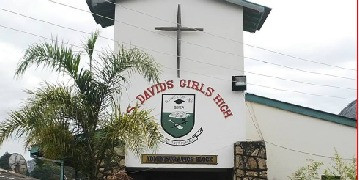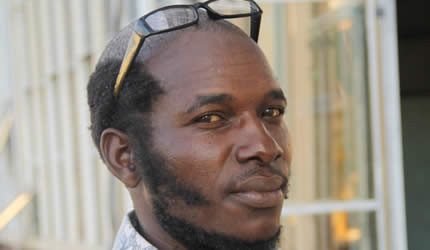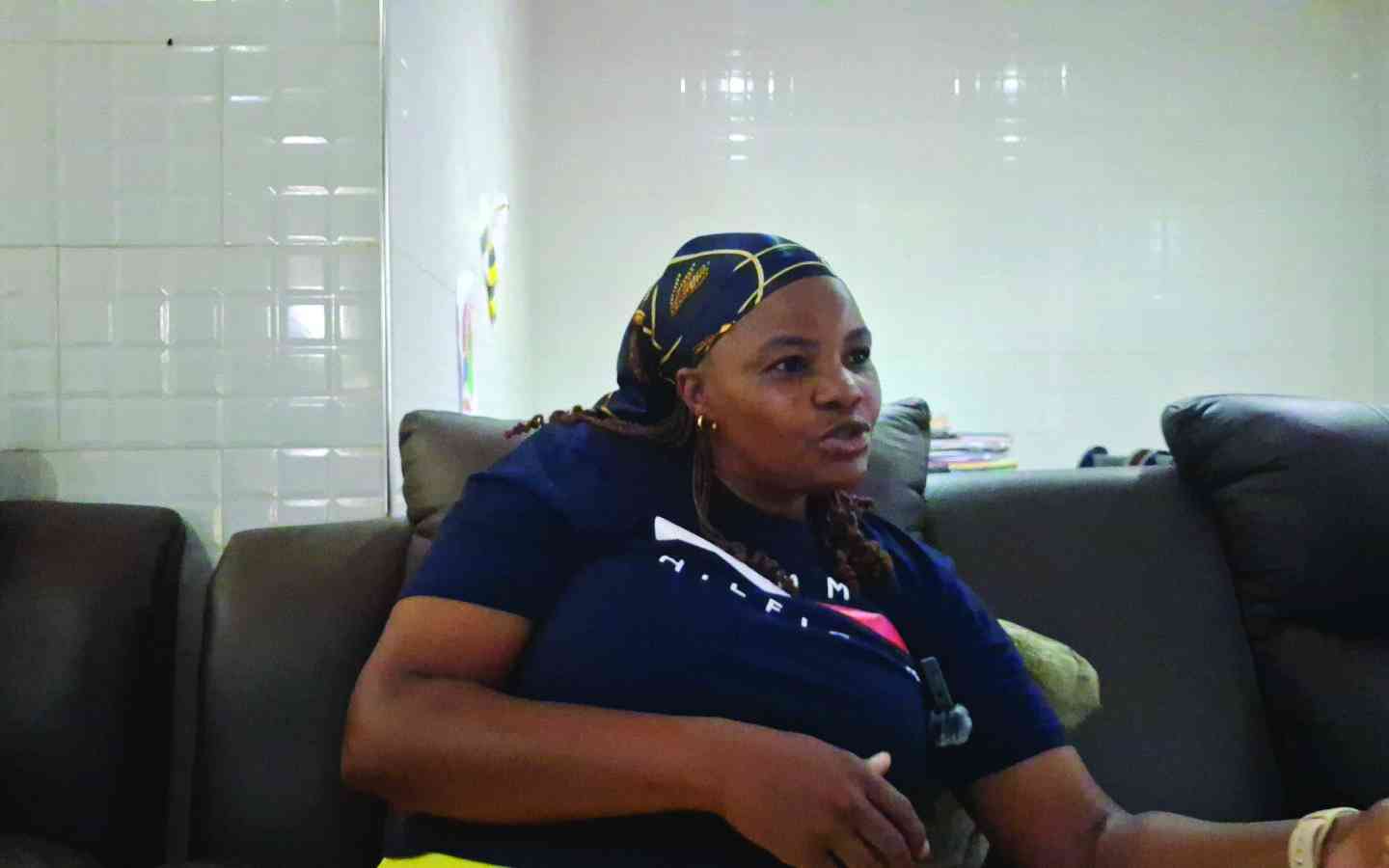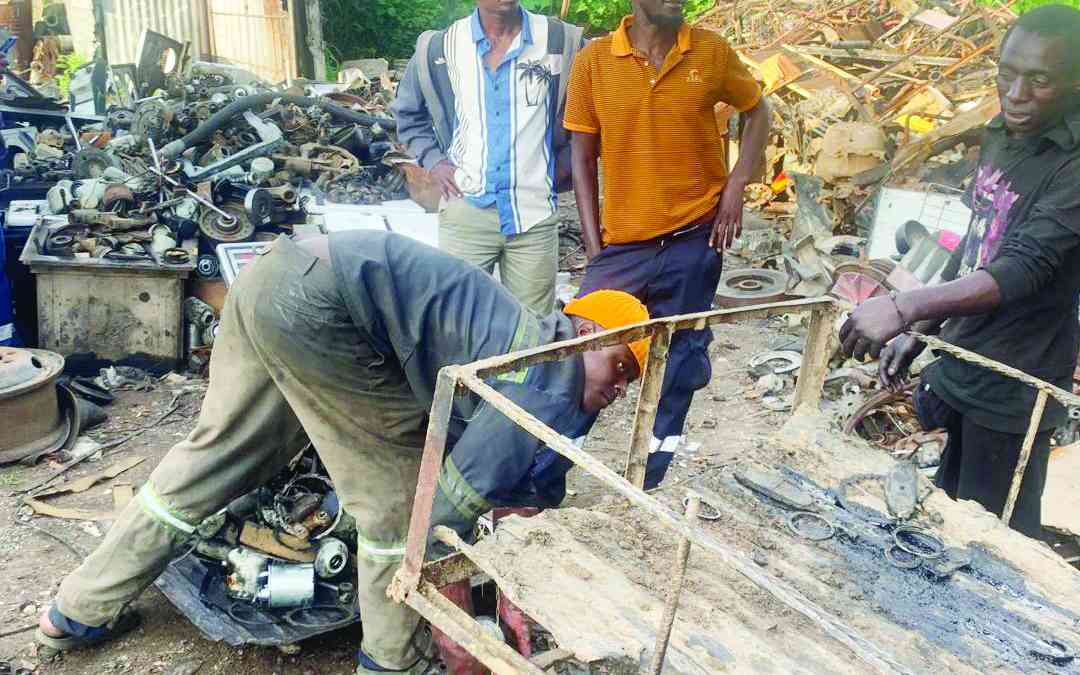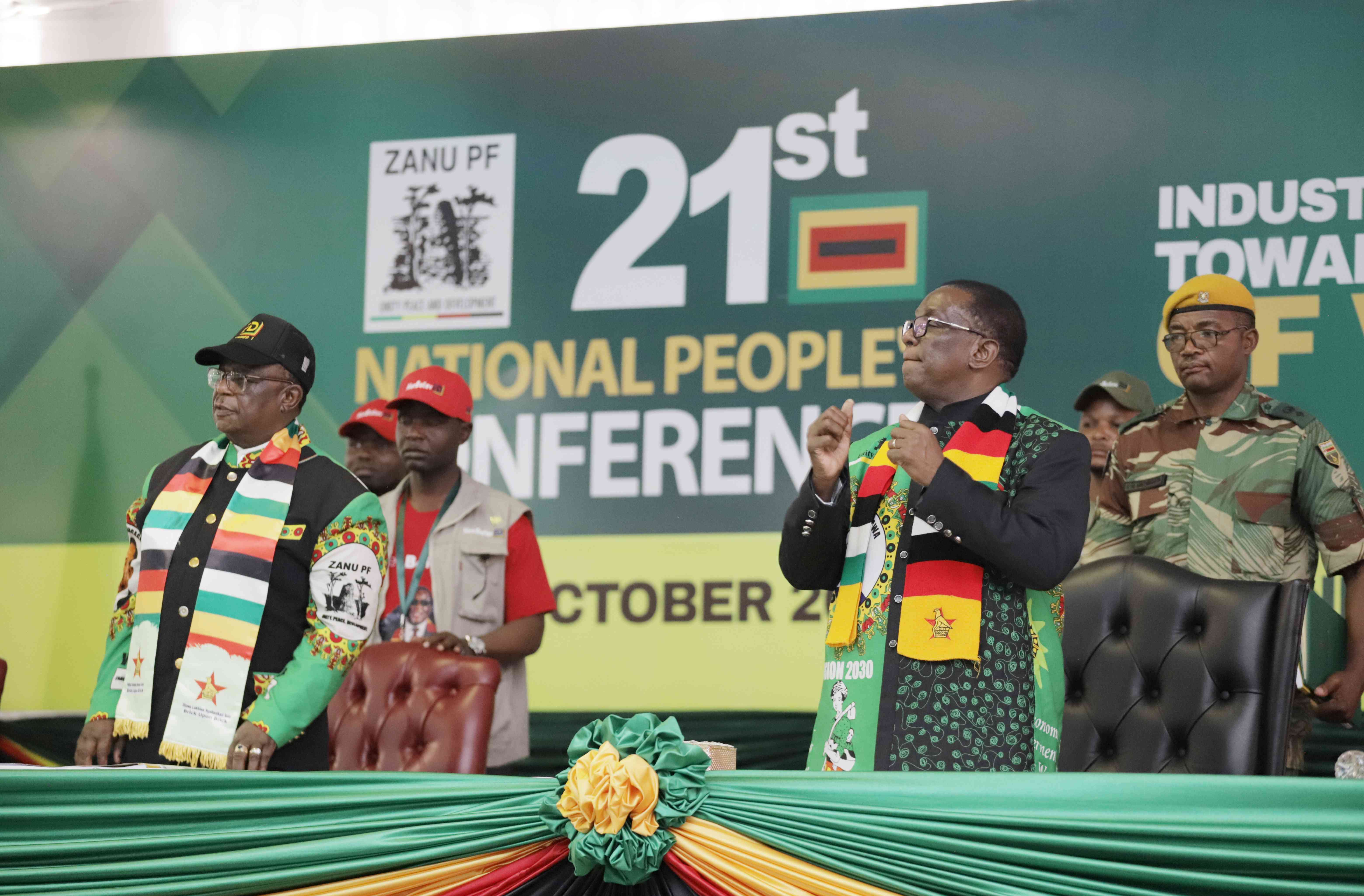
The just-ended Zanu PF conference exposed a widening rift between two factions in the ruling party that are positioning themselves in President Emmerson Mnangagwa’s succession battle with some officials suspected to be loyal to Vice President Constantino Chiwenga being blocked from attending the event in Bulawayo.
Mnangagwa loyalists forced through a resolution calling for the amendment of the constitution so that the 82-year-old ruler can hang on to power beyond 2028 when his second term ends.
The move is being fiercely resisted by those backing Chiwenga to become the next Zanu PF leader and some of them were targeted at the conference that ended yesterday at the Zimbabwe International Trade Fair.
A number of officials from the Zanu PF Harare provincial executive were thrown out of the venue when the conference began on Friday after accusations that they were part of Hwedza Team, the faction said to be backing the VP.
The officials include provincial commissar in the youth league Kudakwashe Damson, Eddie Ringwa (secretary for lands), Boessing Kambumu (technology secretary), one Kapungu (youth league member) and one Manungo (youth league secretary for lands).
Damson was allegedly dispossessed of his official vehicle in Harare before he left for Bulawayo after a stormy central committee meeting where provincial chairman Goodswill Masimirembwa took aim at him.
Suspected Chiwenga backers are also being removed from Zanu PF-linked WhatsApp groups in Harare and Mutare, this publication has gathered.
There were also reports that some officials on Friday were dishing out money to delegates as they tried to influence them to boo Chiwenga on the last day of the conference because of his opposition to the ED2030 campaign.
- Big send-off for Cont Mhlanga
- Massive ZRP vehicle theft scam exposed
- Zanu PF bigwigs face axe in purge
- Village Rhapsody: Health workers’ grievances need permanent solution
Keep Reading
In his address at the conference, the VP steered clear of the slogans calling for Mnangagwa to rule until 2030.
Although Zanu PF passed the resolution calling for the amendment of the constitution to remove term limits, the ruling party’s secretary for legal affairs Patrick Chinamasa said Mnangagwa had told him that he would not accept the recommendation.
“So, where we stand, distinguished delegates, is that of all the resolutions, there is one resolution which cannot be implemented without the express consent and agreement of His Excellency, President Dr Emmerson Dambudzo Mnangagwa,” Chinamasa said while reading the resolutions.
“And on Monday, when he told me this, he said, feel free to tell them you consulted me, which is what I am conveying to you this afternoon.
“So, we will have our resolution, but I think we must understand, coming from here, that it will not go anywhere, because His Excellency is emphatic that when 2028 comes, he will not serve beyond that date.
“He is very emphatic that he had a hand in the drafting and crafting of this constitution, and he cannot be seen nationally, globally, to be the first to violate what he put in place.”
Former Foreign Affairs minister Walter Mzembi insisted that the 2030 agenda was choreographed.
“So eventually the ‘reluctant’ Mnangagwa will be nudged and persuaded to accept the people’s will,” Mzembi said.
“If you want to see how serious this matter is go to the Ministry of Justice, Legal and Parliamentary Affairs where scenario papers were produced way back and are ready to be actualised on the back of this much awaited conference resolution.
“They include a 2030 two-year extension, a 2034 third term scenario and a 2038 scenario including a 10-year moratorium on elections to allow recovery and consolidation of the economy as an excuse quid pro quo with unipolar politics inside Parliament.”
Constitutional law expert and former Finance minister Tendai Biti said the Zanu PF faction pushing for the third term would not succeed and could lead Zimbabwe into chaos.
“It will put the country into a situation where it is not reproachable,” Biti said.
“(Mnangagwa is) setting himself up for a disastrous hurricane. He is not going to win the war.
“The biggest thing that we did in the last 15 years was to come up with that constitution with the term limit.
“So, for Emmerson to contribute to that and reverse history, if you sow a storm — he is going to reap a hurricane, he is going to harvest a hurricane.
“And no one can control the hurricane. No one can control the tsunami.”
Another law expert Lovemore Madhuku said a constitutional amendment to remove the third term would be impossible.
“From a legal point of view, I don't think they even know what is required,” Madhuku said.
“They are likely to be making one blunder after another, so they cannot even succeed legally.
“In other words, they do not have the capacity to understand what the constitution requires for them to remove the two-term limit.
“That is the first problem they face. I'm sure I don't want to be sad. Zanu PF does not have sufficient legal acumen within their circles to be able to tackle that.”
He said the push for a third term could create a constitutional crisis.
“So, politically, that resolution doesn't mean what it says. It doesn't have the support, that political support you think it has,” he said.
“What they are saying there is that the majority of Zanu PF people believe in the opposite of what that resolution says.
“Only that in the political world, they exist. They don't care for the moment.
“They know when the time comes, they won't do it.”
Madhuku said the agenda would not succeed legally and politically.
Political analyst Eldred Masunungure echoed similar sentiments,.
“It is more likely that the matter will be settled through negotiations among the major gladiators in the party and, critically, the military,” Masunugure said.
“This is not just a party matter; the military has a strong vested interest in how the issue is settled andwill be at the negotiating table when the matter is discussed to its finality.”
The ED2030 agenda is said to be finding no takers in the military. Most of the security chiefs who attended the Bulawayo conference had left the conference by the time Chinamasa read the controversial resolution.

